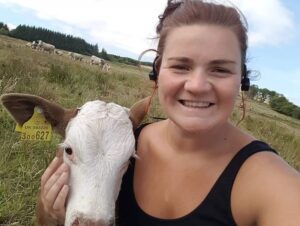Farmers didn’t see many headline benefits from the Chancellor’s Autumn Statement – but there were some smaller hidden impacts to be aware of, according to rural accountant Old Mill.
National Insurance
Of course, the headline reductions in National Insurance will benefit everyone, from the self-employed to employers and their employees. “That will help take the edge off the stealth tax increases and threshold freezes,” says partner Andrew Vickery. Income tax thresholds remain unchanged, and with inflation and the rise in the living wage, it’s a question of giving with one hand and taking back with the other.
“However, it could be worth delaying Christmas bonuses until the New Year, when the NI reductions come into force, so that employees receive more of the money – although it rather undermines the point of a Christmas bonus!”
Capital expenditure
Lifting the limit on how much capital expenditure limited companies can put against profits in a single year sounds like a positive move – although retaining the £1m cap for sole traders and partnerships smacks of an uneven playing field. That said, the Annual Investment Allowance is more open than full expensing for companies, as second-hand equipment is eligible for the former, and not for the latter, says Mr Vickery.
“In reality, how many sole traders and partnerships expect to spend more than £1m in a single year? Even if you’re putting in a major new parlour or grain store, that expenditure often means other purchases are put on hold, and often it can be spread over two financial years.”
Benefits
Trimming the benefits regime to encourage more people into work is more of a political football than an economic one, he notes. And while having more people in the workplace should in theory mean more available to agriculture, the reality of hiring someone who doesn’t have the necessary skills for the job is unlikely.
ATED
One of the more hidden elements of the Statement was a 6.7% increase in the Annual Tax on Enveloped Dwellings (ATED). This tax is relatively unknown, but many agricultural businesses will be exposed to it, warns Mr Vickery. Often farms have properties which are rented to the farm company or partnership which has a company member. These dwellings are subject to the ATED, with houses worth between £500,000 and £1m incurring a tax of £4,400/year from 1 April 2024. Properties worth more pay higher tax on a sliding scale.
“Most farmhouses, farm workers’ properties, and let cottages are exempt – but you must apply for the exemption each year,” he explains. “If you’re not aware of the tax and haven’t applied for the exemption for several years, then you’re going to face a big tax bill and penalties. With the increase in the ATED it’s going to be 6.7% more costly not to understand this tax and deal with it appropriately.”
Self-employed
Another under-the-radar change affects how self-employed people can prepare their accounts. Previously, anyone with a turnover over £150,000 was required to use the accrual basis – now that limit has been removed, so anyone can choose to use the cash basis instead. “The cash basis is a simpler system, but people should be very wary before using it,” warns Mr Vickery. The fluctuations in cash flow can make accounts look very strange when presenting to a bank for a loan, for example. And those using the cash basis lose the ability to offset losses from the farm against other sources of income.
Pensions
When it comes to future changes, the Chancellor announced a consultation into whether employees should be able to keep their pension pots for life, rather than having different pensions set up each time they change jobs. “I can see that being a real benefit for employees, but it will be a real headache for employers, having to pay into different pensions for every employee,” says Mr Vickery.
Inheritance Tax
In terms of headlines which were touted but never came to fruition, the expected reform of Inheritance Tax (IHT) yielded nothing. “There were some expectations of reducing IHT from 40% to 20%, or raising the payment threshold – but Labour would have made hay with that. All eyes are now on when there will be an election and how quickly after that there will be changes. And it’s almost unthinkable that Labour will cut IHT while putting VAT on school fees – so if a change is made it’s unlikely to be a beneficial one.”
Child Benefit
Finally, the decision not to reform Child Benefit will be a blow to parents on a reasonable income. Anyone earning over £50,000 sees their Child Benefit payments restricted, explains Mr Vickery. “That’s rather unfair on hard working people who’ve got children, particularly given the rate of inflation. Those who are self-employed have the ability to manage their accounts to avoid this pitfall, but you have to be aware of it in the first place.”
- For more information visit www.om.uk.





